Universities, research centers and science and technology agencies from Greece, Cyprus, the Valencian Community and the Murcia Region gathered on the Greek island of Lemnos to present the activities of the Mediterranean Researchers’ Night (MEDNIGHT). The activities begin this summer in various cities of the Mediterranean basin.
The meeting for the international launch of the MEDNIGHT project took place on June 3 and 4 on the Greek island of Lemnos. It was coordinated by SciCo Greece and the Department of Food and Nutrition Sciences of the University of the Aegean, with the support of the Municipality of Lemnos. These are the details of the program:
Objective of the activities: to promote Mediterranean science
All of the activities presented have a common objective: to promote and showcase Mediterranean science, especially emphasizing the work carried out by female researchers.
MEDNIGHT 2021 has identified eight subject areas that cover the most challenging fields for the Mediterranean basin and in which scientists have an indispensable role: Geology and biodiversity, Sea and pollution, Climate and clean energies, Diet and nutrition, Life and health, History and heritage, Pioneering female scientists and the Future.
MEDNIGHT will be celebrated within the framework of the European Researchers’ Night, a project to disseminate science promoted and financed by the European Commission as part of the Marie Sklodowska-Curie activities (subsidy agreement no. 101036107) of the Horizon 2020 program.
Program details:
Thursday, June 3

Welcome and greetings.
Dimitris Marinakis (mayor of the municipality of Lemnos), George Dimaris (deputy mayor) and Pandora Sifnioti (Scico Greece) opened the kick-off meeting welcoming all partners and emphasizing the need for collaboration between different entities, such as city councils and universities, in order to find solutions to local problems.
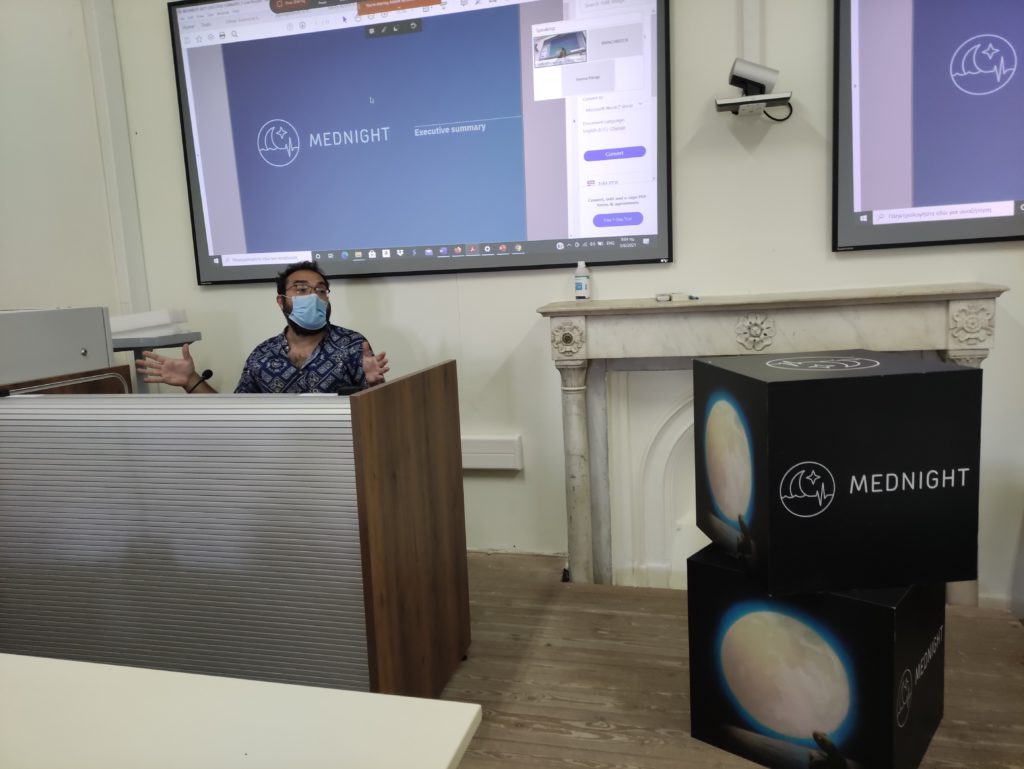
Presentation of the work plan, tasks management, roles and milestones .Ricardo Domínguez (project coordinator) explained the main ideas on which the proposal relies: the entity network, the proposed activities, the key topic areas, the awareness campaign, etc.
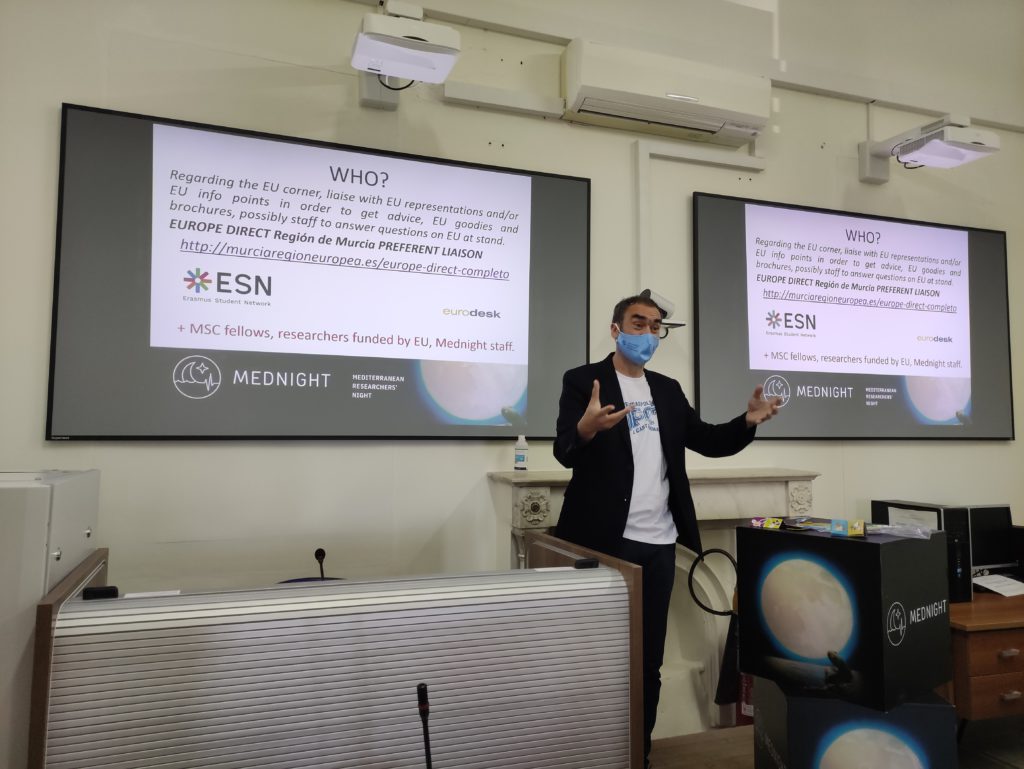
EU-Corners Configuration and Guidelines. José Luis Serrano (UPCT) talked about the purpose of the European corner, the online activities (interactive games, contests, etc.) and the characteristics that the EU corner should have in the main events with the participation of the MCS fellows, researchers funded by EU and the Mednight staff.
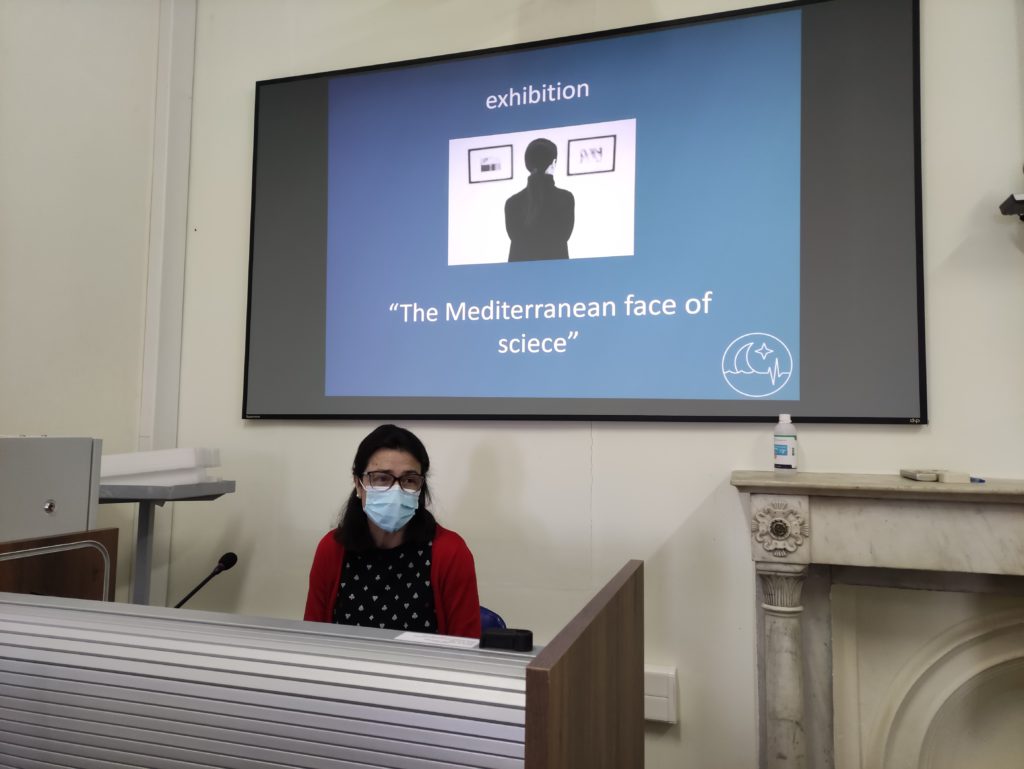
“The Mediterranean Face of Science” Exhibition. Reme Pérez (Fundación Séneca) presented an exhibition of over 25 panels about the scientific career of current and practicing researchers in the countries of the Mediterranean basin, because girls need references, women like them, real, contemporary examples.
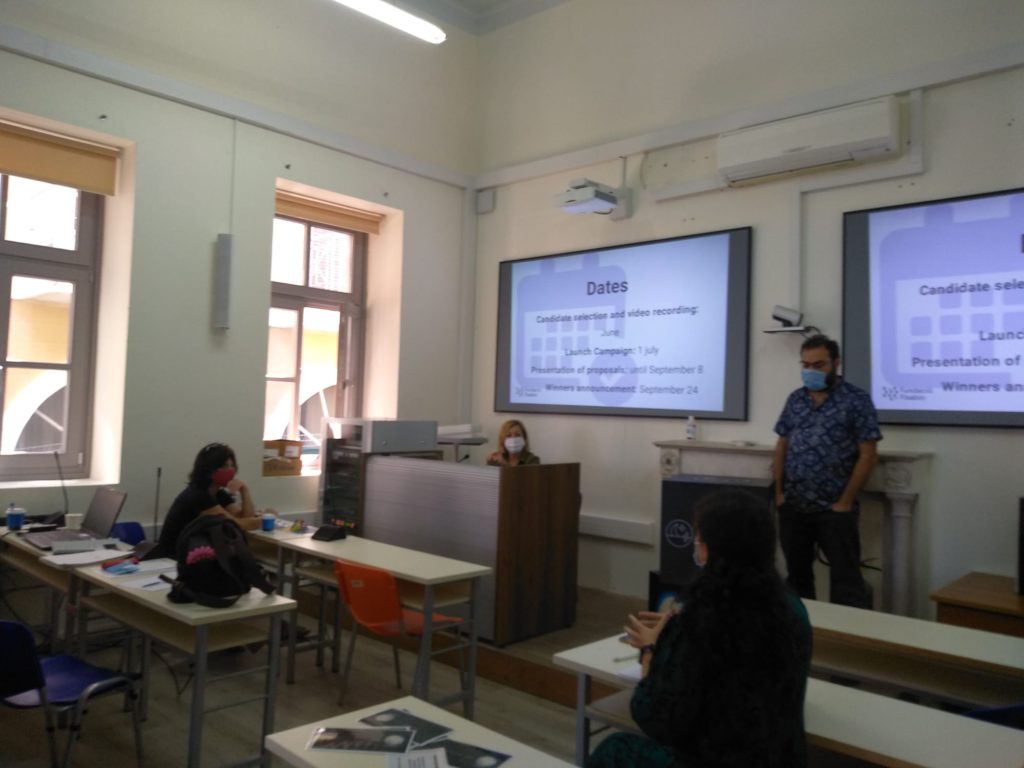
Green Challenge. Mila Martínez (Fisabio Foundation) talked about the Green Challenge, a video contest on Instagram intended for students between 14 and 18 years old. They must respond to the challenges posed by MEDNIGHT researchers in these areas: Geology and Biodiversity; Sea and Pollution; Climate and Clean energies, Life and Health.
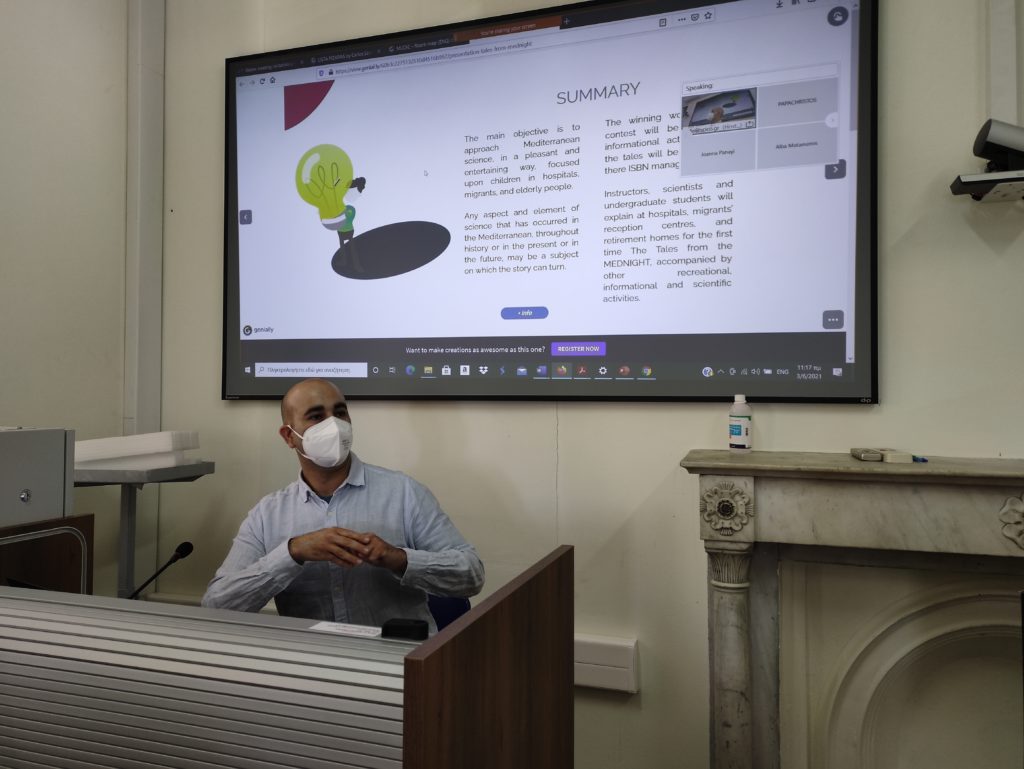
Tales of the Mediterranean. Carlos Sánchez (MUDIC) introduced this contest aimed at researchers, teachers, writers and journalists to write tales and stories related to Mediterranean science. During MEDNIGHT, the tales will be read to children as well as refugees in hospitals, homes for the elderly and immigration centers.
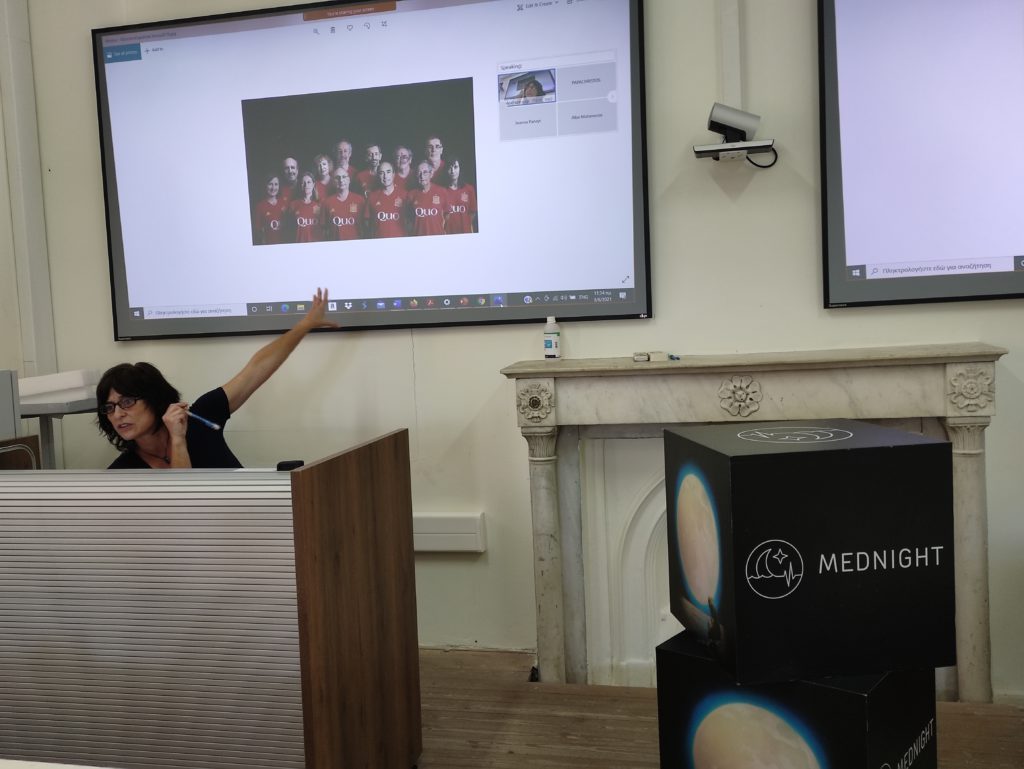
Mediterranean Science Selection. Lorena Sánchez (El caleidoscopio) coordinates this project in which 11 scientists of several areas will be involved. They will represent Mediterranean Science. The introduction of this selection will be held on September 24th in the city of Alicante (Spain).
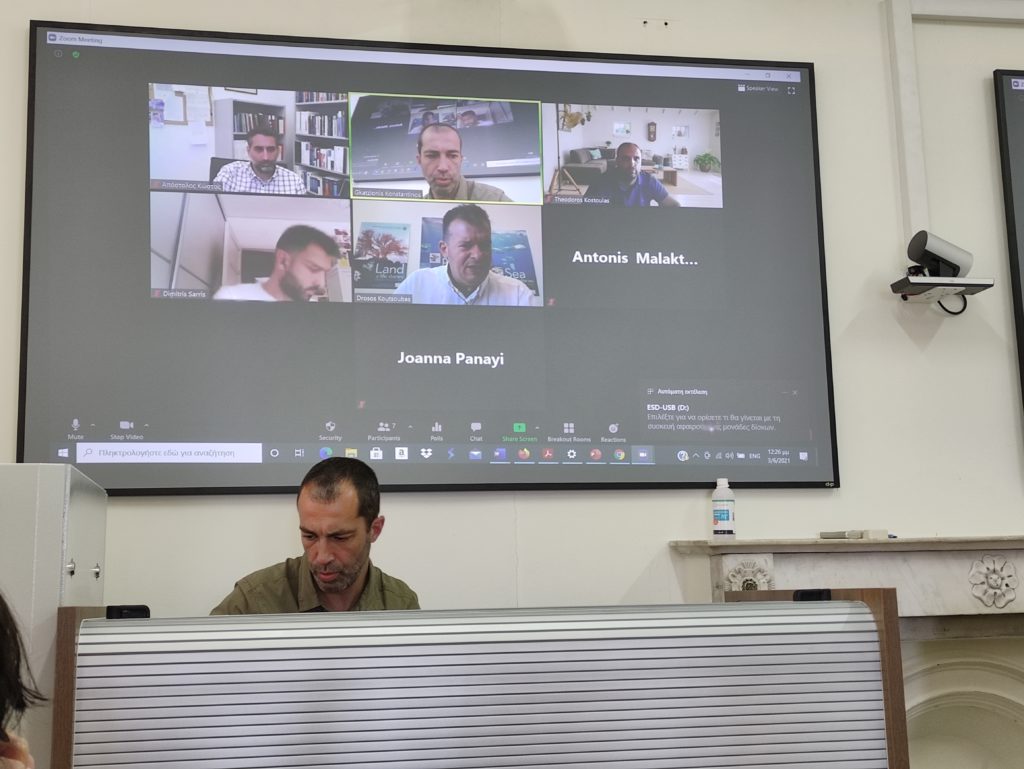
Research and Innovation on the island of Lemnos and Beyond
Researchers at the University of the Aegean introduced the research lines they are developing in these fields:
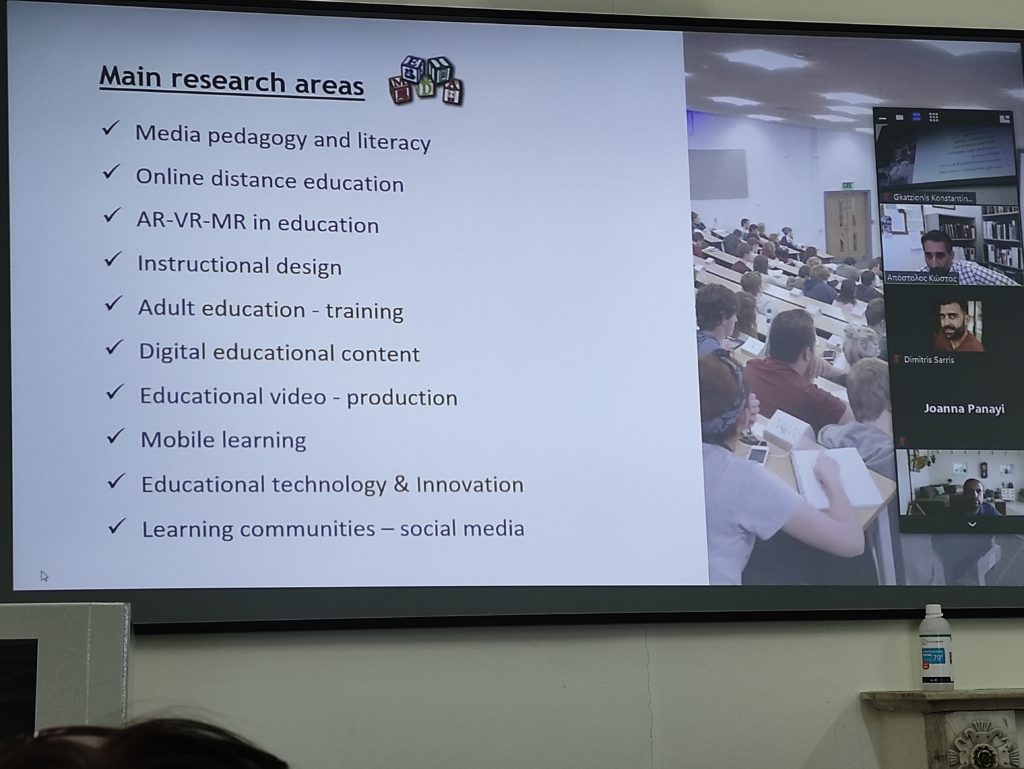
Media Pedagogy Research Group. Apostolos Kostas (Department of Primary Education) explained the main research areas and the projects in which they are involved, including media pedagogy and literacy, online distance education, instructional design, adult education, digital education content and mobile learning.
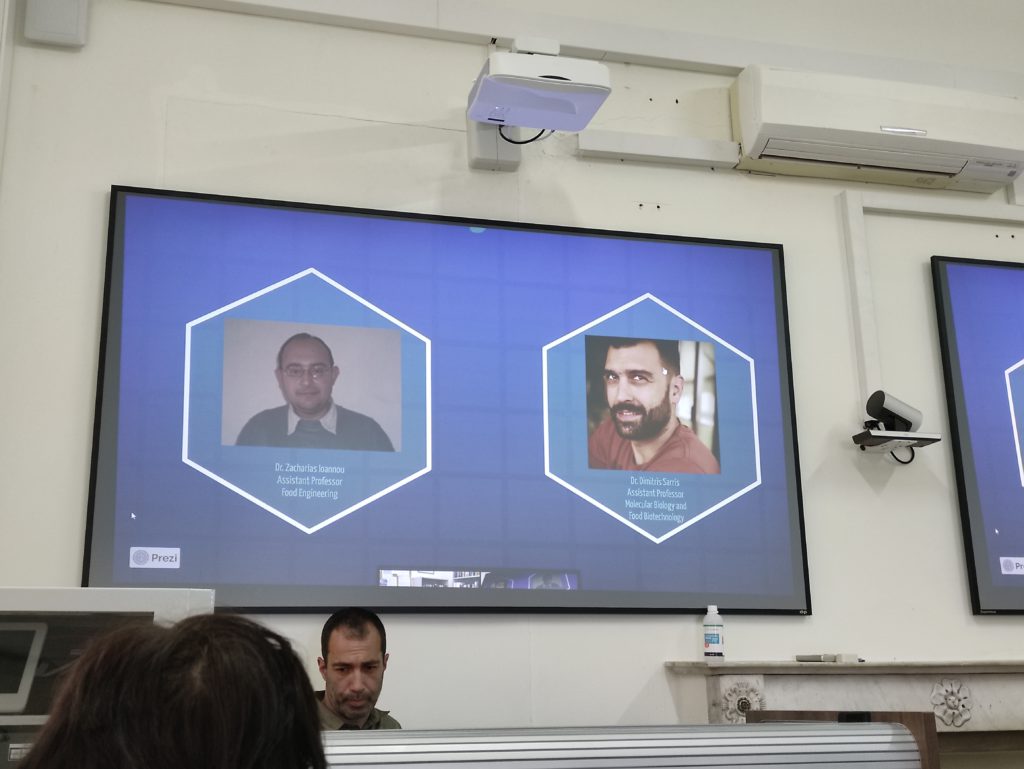
Laboratory of Physico-Chemical and Biotechnological Valorization of Food By-products. Dimitris Sarris (Department of Food Science and Nutrition) explained the biotechnological treatment process used for converting feedstock into products such as fuel, pharmaceuticals, etc.
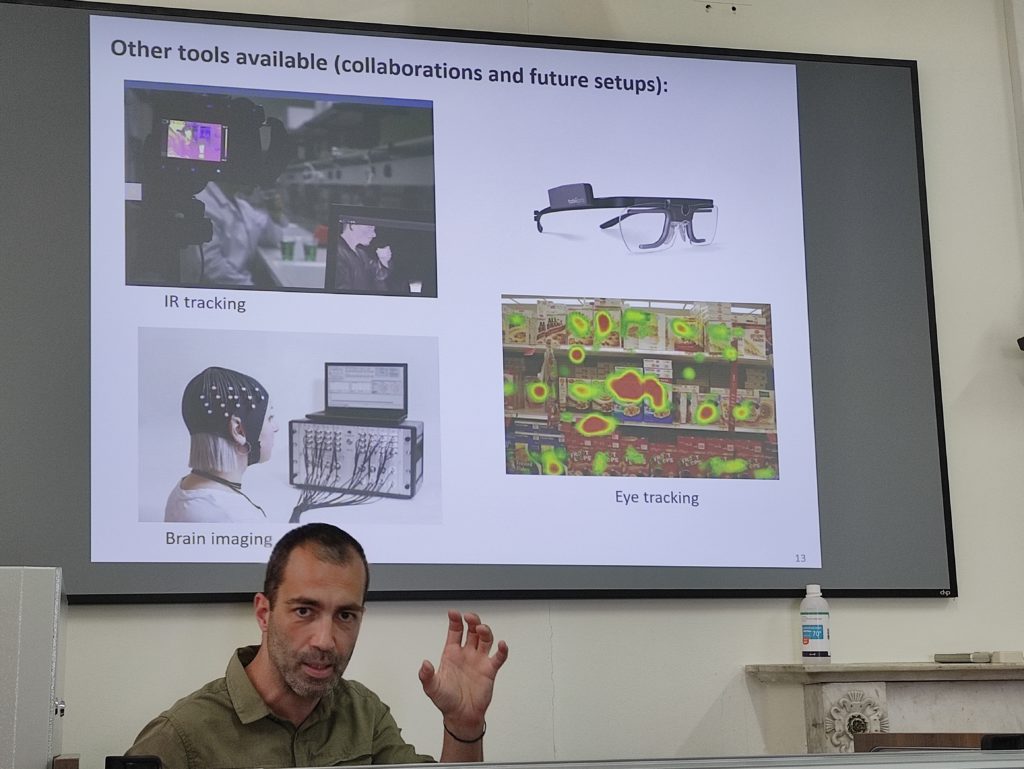
Laboratory of Consumer Responses and Sensory Perception of Foods and Drinks. Konstantions Gkatzionis, head of Department of Food Science and Nutrition, detailed the tools they use in their studies for developing and improving final products, as well as the adaptation of products to new markets or new consumer groups.
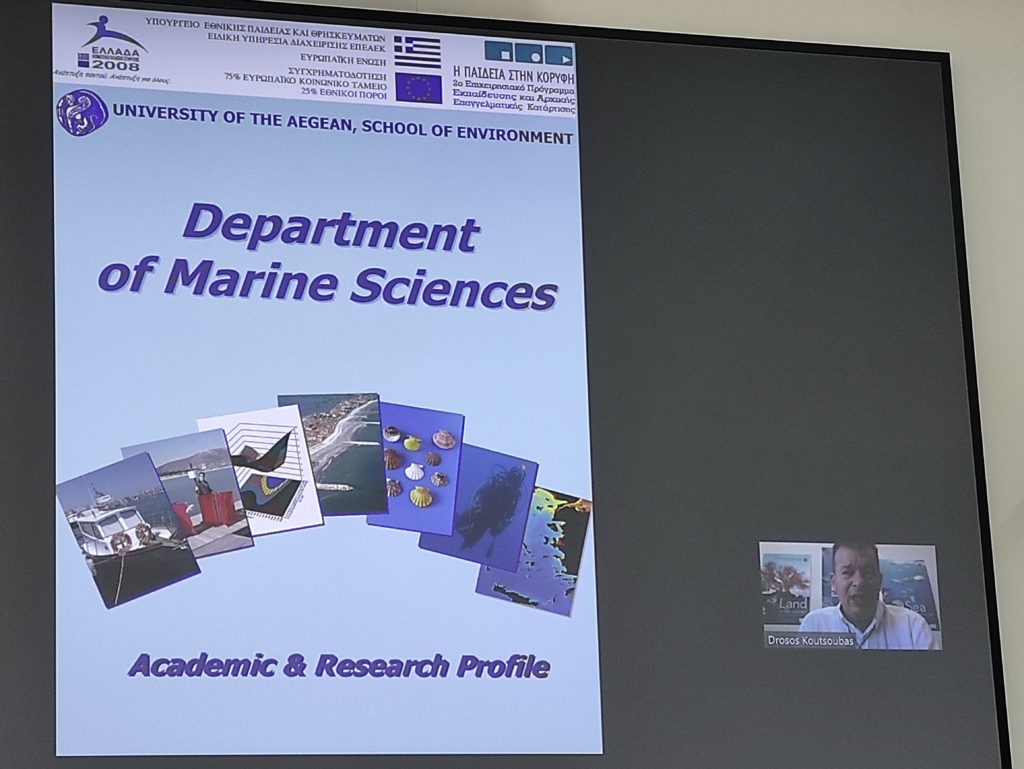
School of Environment. Drosos Koutsoubas, head of Department of Marine Science, described the research lines they are developing: coastal morphodynamics, water quality and marine pollution, fisheries management, marine ecology and biodiversity, ocean-atmosphere interactions, ecological modelling, and fisheries and aquaculture.
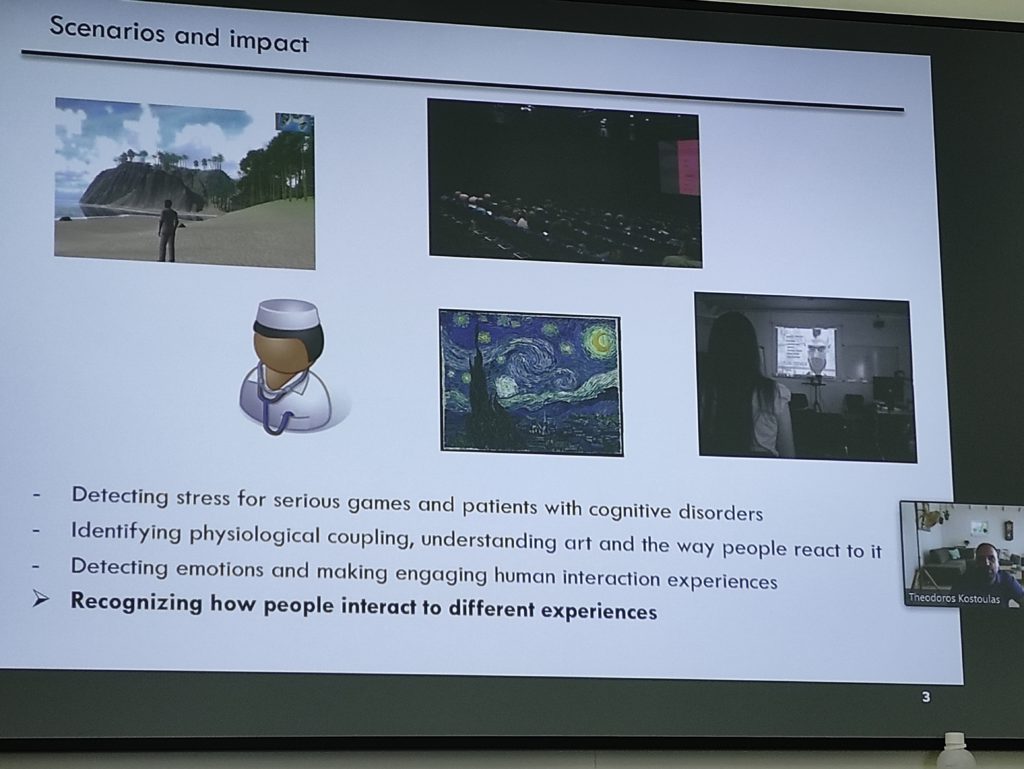
Department of Information and Communication Systems Engineering. Theodoros Kostoulas talked about the multimodal interaction and affective computing, interdisciplinary research studies about the human-machine and human-interaction.
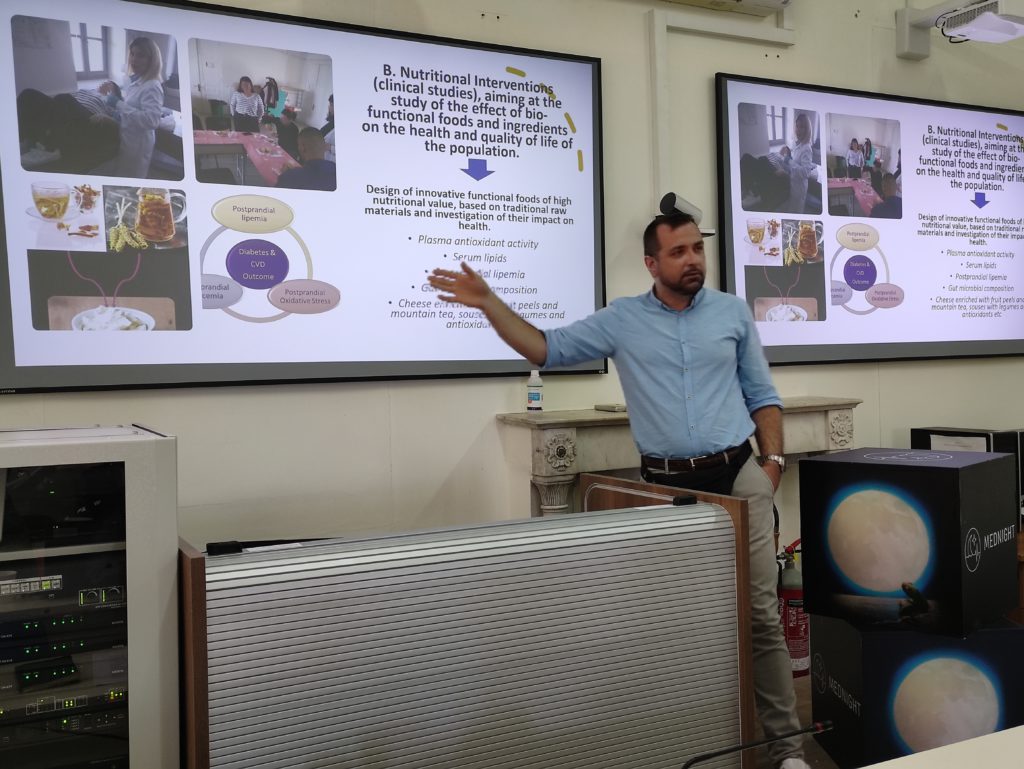
Department of Food Science and Nutrition. Antonios E. Koutelidakis, assistant professor of Human Nutrition, talked about the main studies in the effect of pathophysiology of several degenerative disease (cardiovascular disease, osteoporosis, cancer…), including the design of innovative functional foods of high nutritional value, nutritional evaluation and nutritional education in schools.
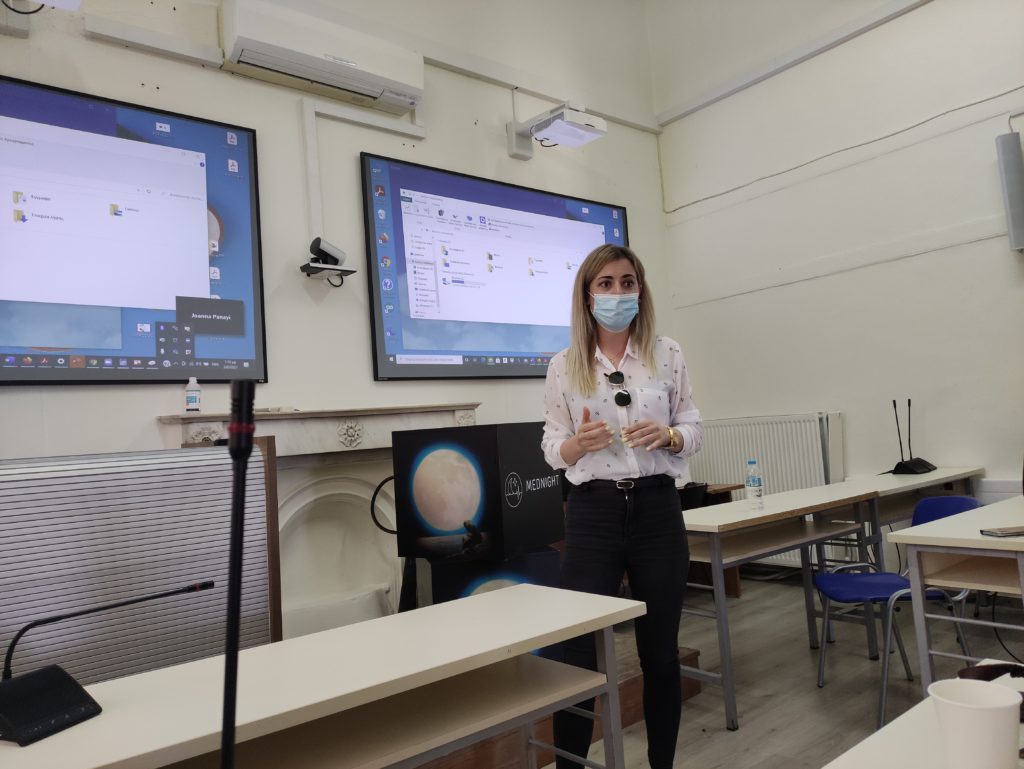
Department of Food Science and Nutrition. Maria Mamalikou, psychologist and doctoral student emphasized the importance of studying the psychological impact of food in several target audiences, such as young students.
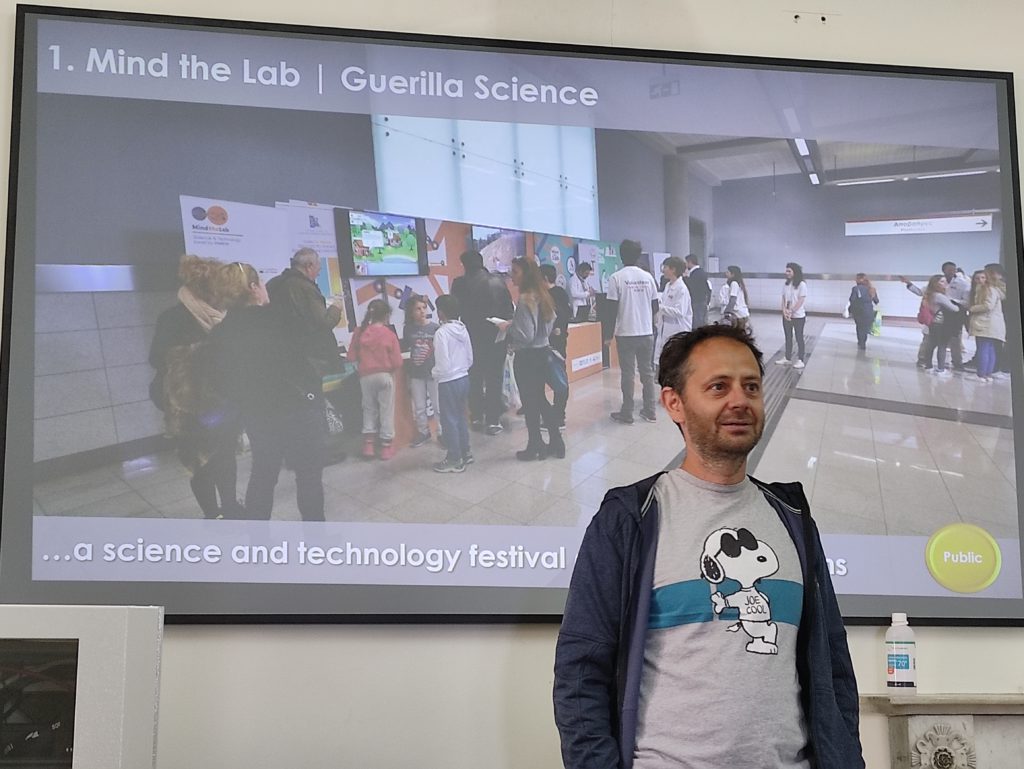
Science Communication and Science Engagement workshop
Theo Anagnostopoulos (Co-founder & General Manager SciCo Greece) related the story of the creation of Scico Greece and the activities they carry out: Mind the lab/Guerrilla Science, Celebrity Science, Citizen Science, STEMPowering Youth, Rivers connecting people and more than 300 student projects. In addition, he conducted a workshop about the keys to successfully disseminate science.
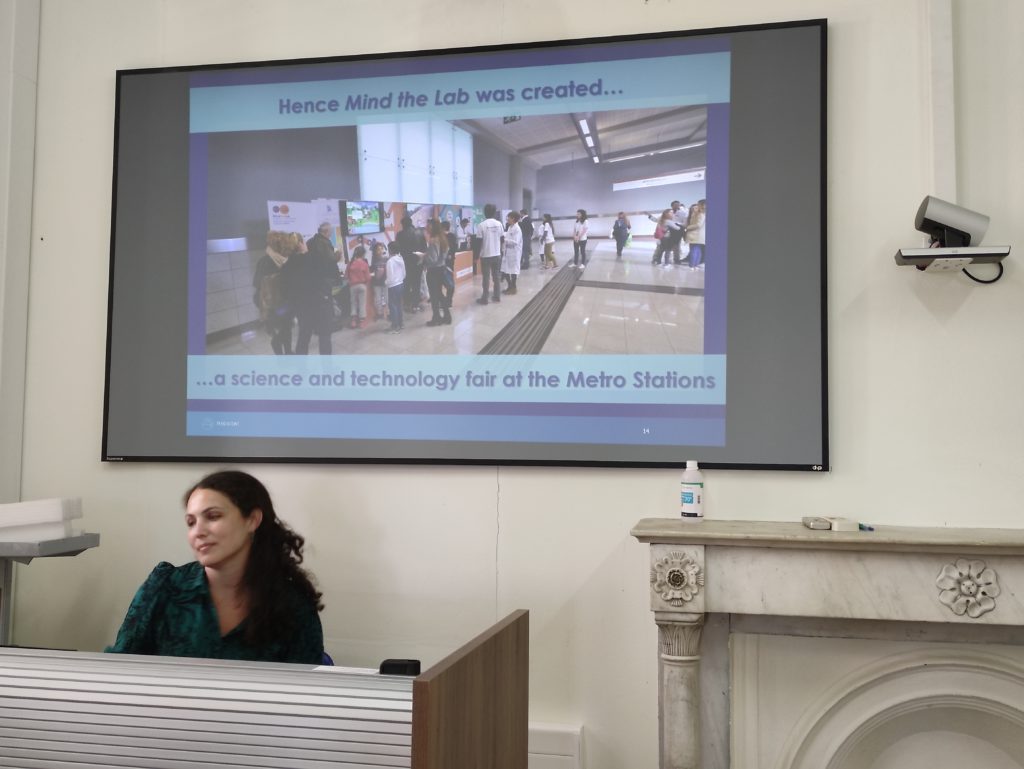
Mind the Lab. Pandora Sifnioti (STEM Director Scico Greece) explained the concept, history and evaluation of the project Mind the Lab, which started in 2017 in Athens and has traveled to other 4 European cities: Berlin, Edinburgh, Dublin and Madrid, impacting at total of 120,000 people.
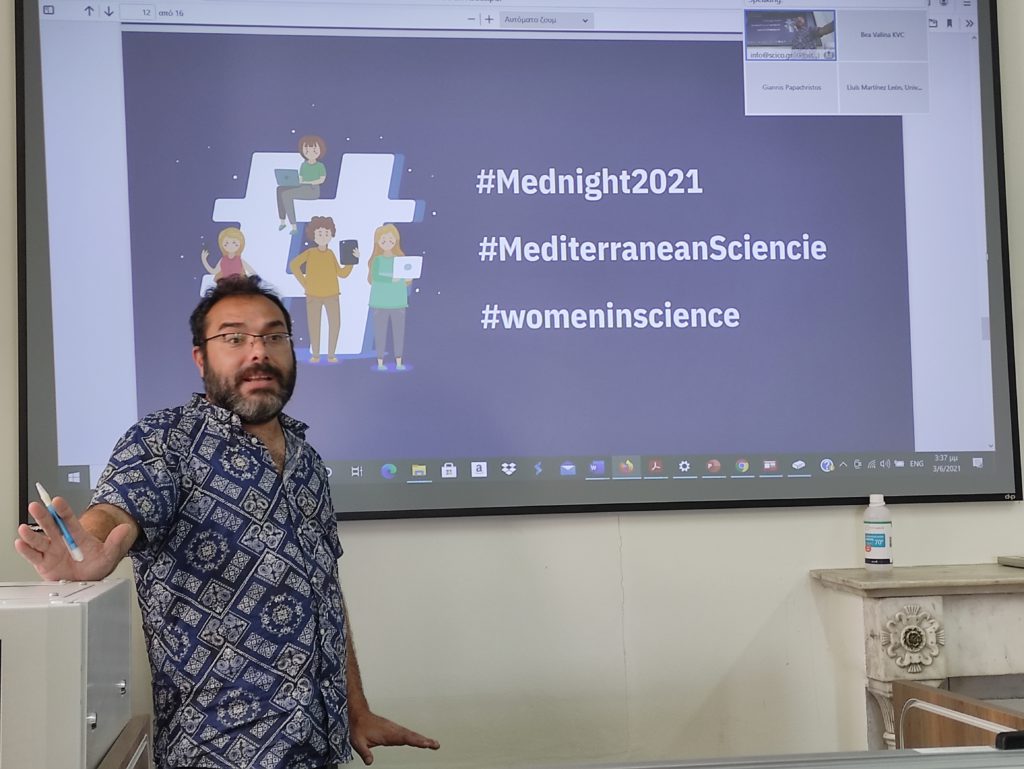
MedNight Activities: Scope and Common Framework
Communication Strategy. Lorena Sánchez and Ricardo Domínguez talked in detail about the internal and external MedNight work plan, as well as the social media management and the web page.
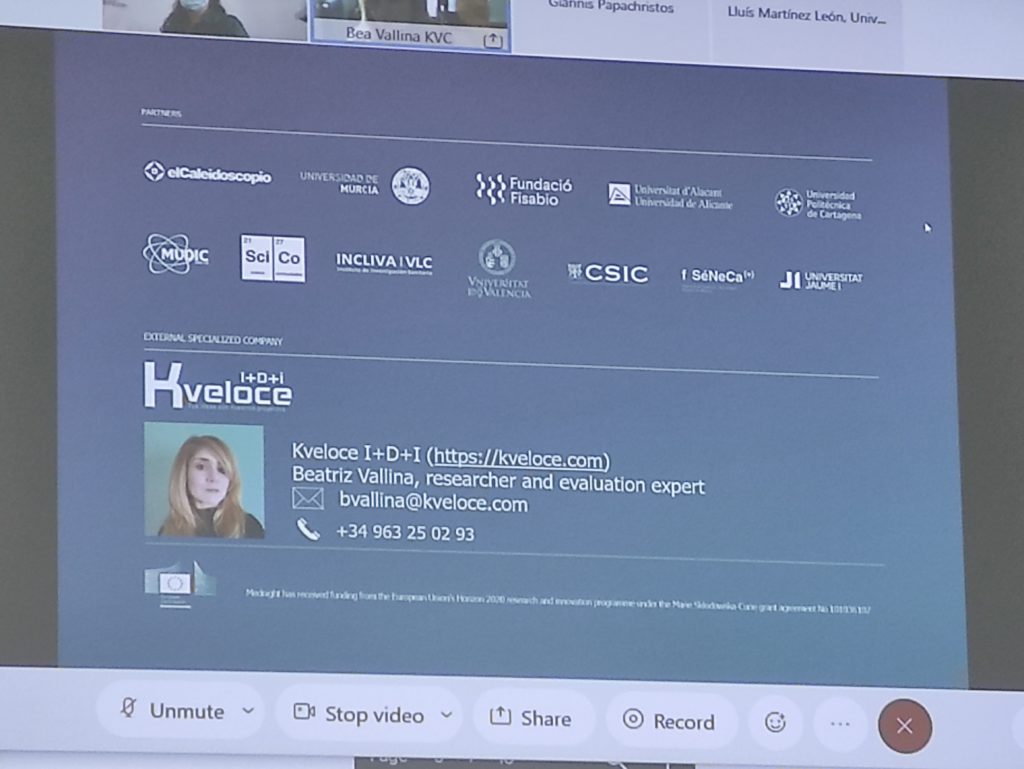
Impact and Evaluation Plan. Bea Vallina (Kveloce) analyzed how to evaluate the activities of the Mednight project, including the social, academic and professional impact, as well as the quantitative and qualitative evaluation implementation.
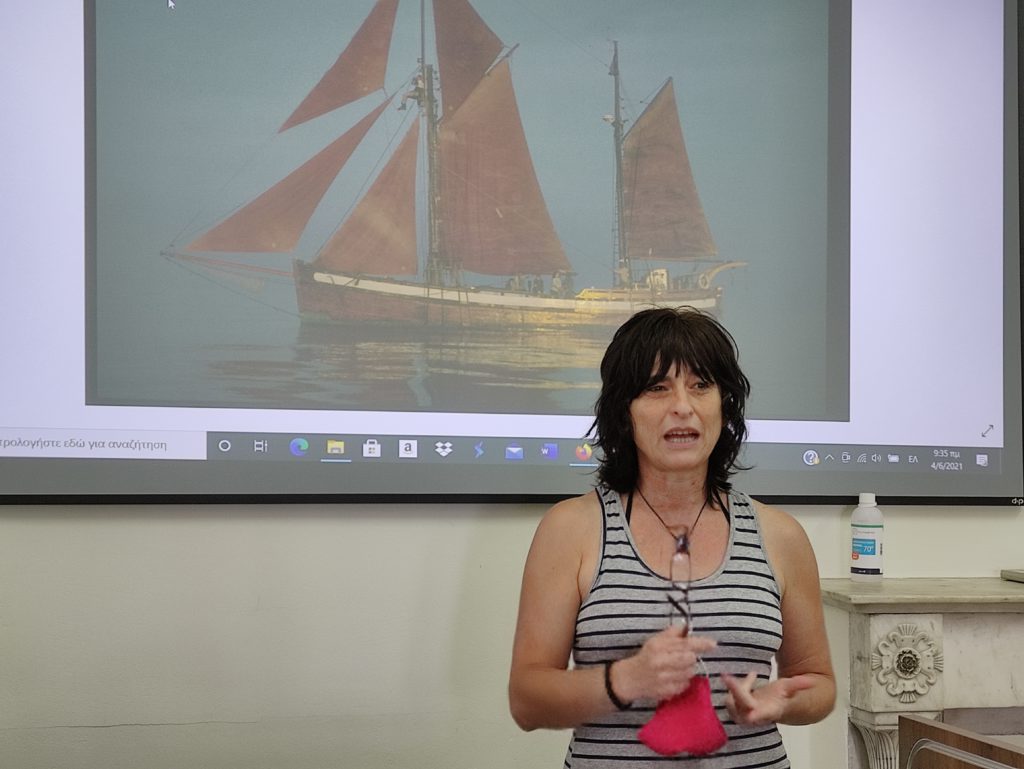
Friday, June 4. The Mednight Vessels. Lorena Sánchez introduced the centennial research vessel Toftevaag, that is making a stop in the Mediterranean ports, bearing the MEDNIGHT flag. Throughout the entire summer, it is possible to visit it, and even enlist as a volunteer to participate in its citizen science activities in Almería, Granada, Águilas, Cabo de Palos, Ibiza and Portocolom (Mallorca).
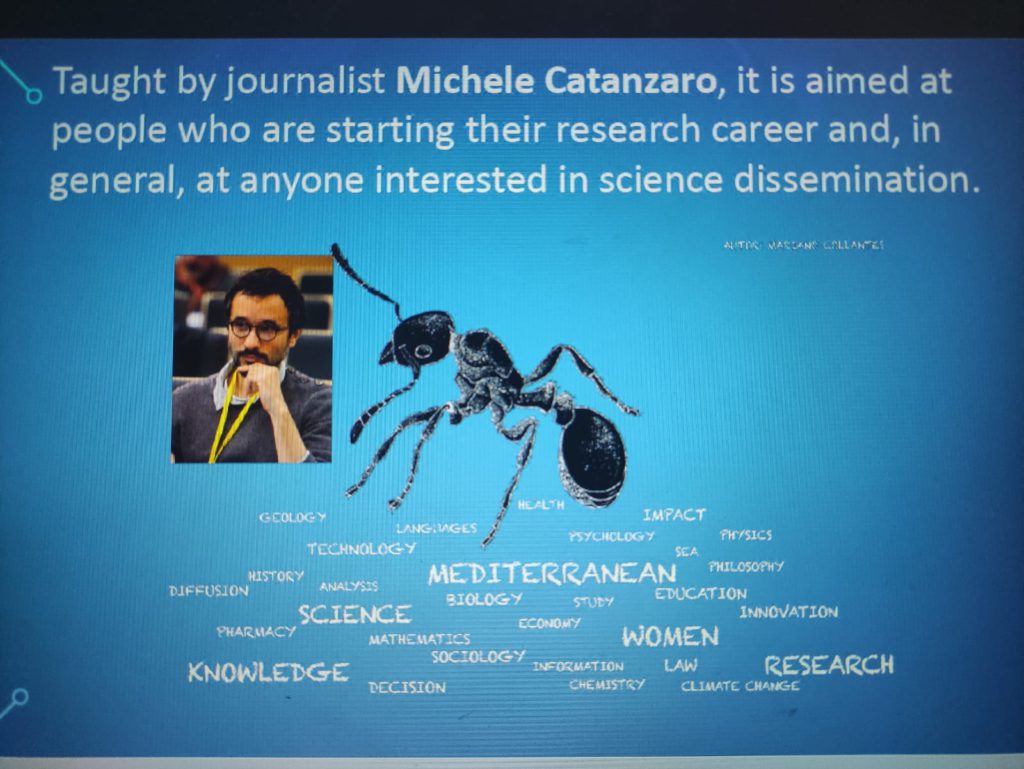
Scientific Communication Workshop. The Universitat de València presented its scientific communication workshop proposal. Its objective is to educate researchers to learn to disseminate science and become familiar with the best practices in scientific communication.
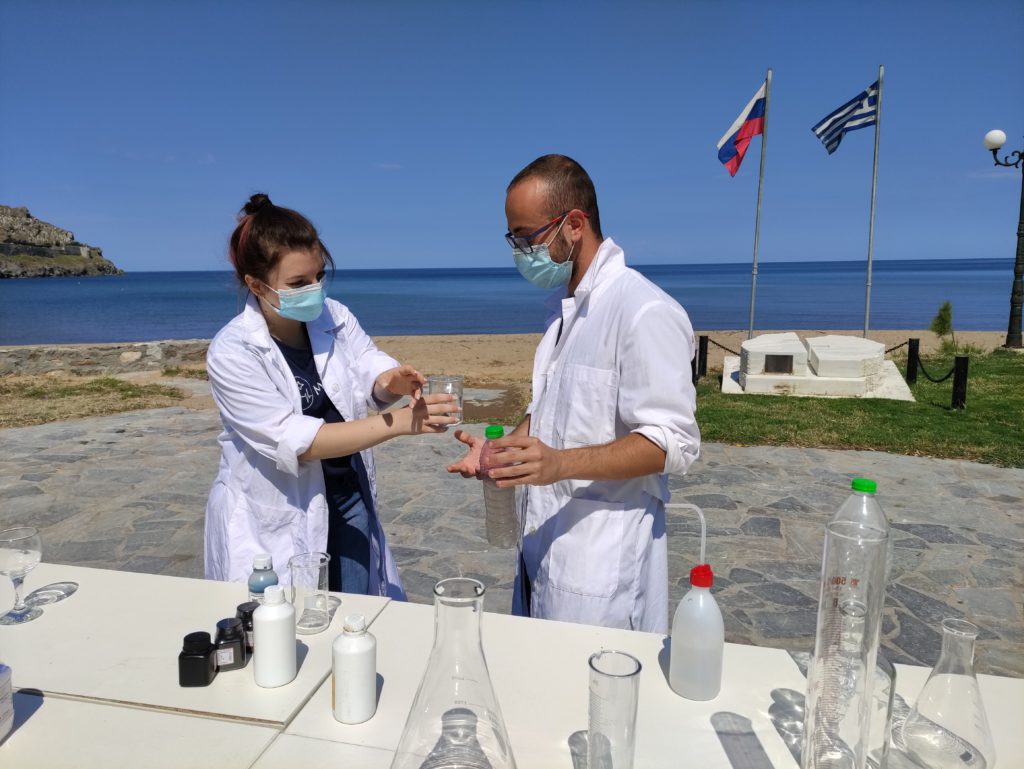
Mind the Lab Activities. Set at three different settings in Myrina, the main city of Lemnos, the SciCo Greece Guerrilla Science surprised the visitors with several scientific experiments with the aim of approaching science to general society, encouraging people to actively participate in demonstrations.
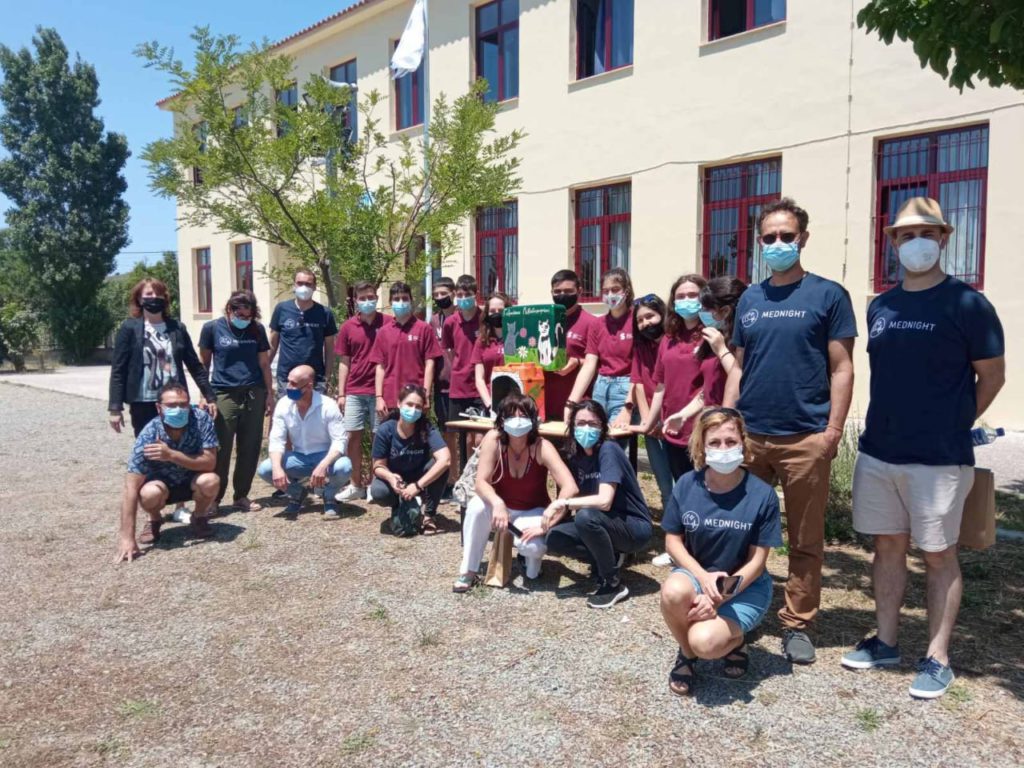
The Value of Open Schooling – Open Science Hub (SciCo Greece, School of Livardochori). Students of the High School of Livardochori showed their technological designs to respond to needs detected, such as the development of two obstacles detection systems to blind people, and an automatic food dispenser for cats.
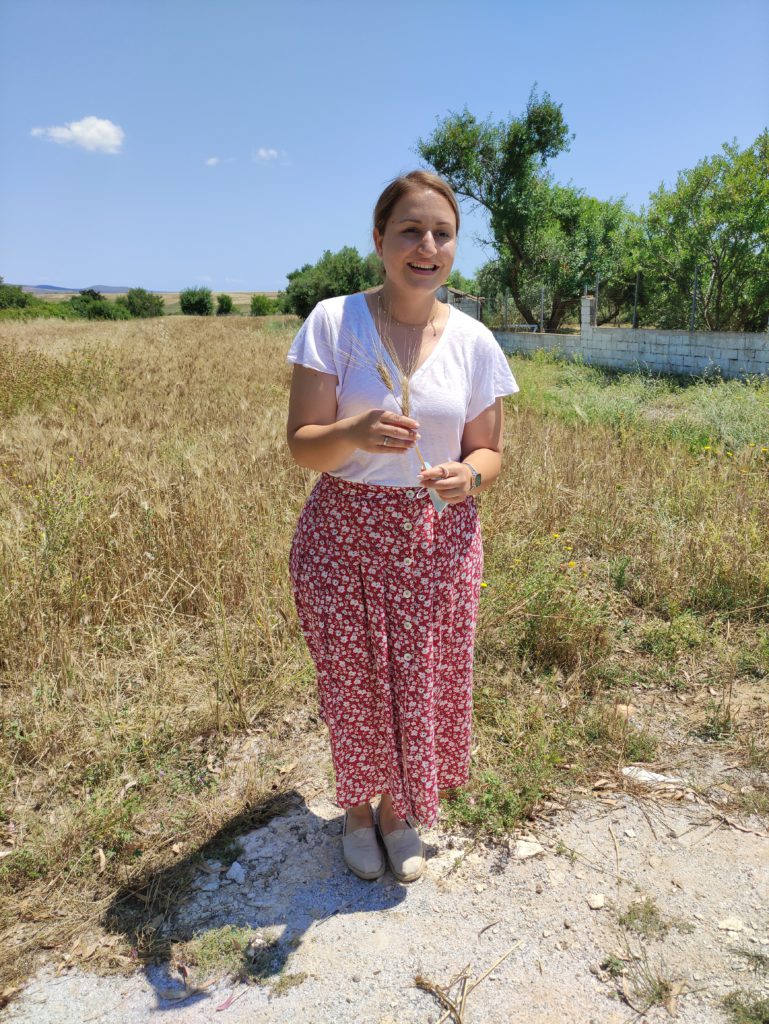
Traditional Bakery | The Art of Breadmaking. The Mednight program made a stop in the town of Poriazo to find out firsthand the method to hand-make the traditional bread of the island and the new products they develop to meet new demands.
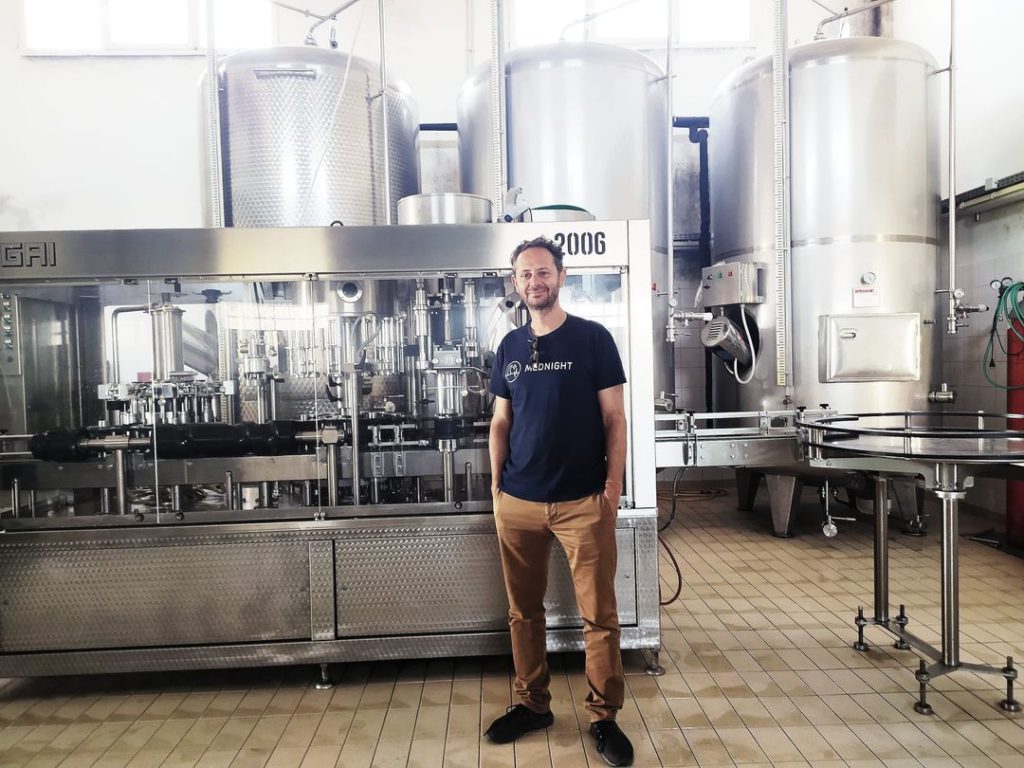
Wine Tasting Experience | The Art of Wine. The activity program of the kick-off meeting of the MedNight 2021 ended with a visit to the Chatzigeorgiou Wineries, one of the local wine cellars, which produces wine using the local grape varieties from the island.

